Crohn’s disease diet food list
If you have Crohn’s disease, it can be challenging to know what you should and should not eat. Crohn’s is an inflammatory bowel disease that affects the gastrointestinal tract (and other parts of the body) and interferes with the body’s ability to digest and absorb nutrients and get rid of waste.
Flare-ups for people with Crohn’s can include diarrhea, stomach pain, and loss of appetite, among others. The best way to manage Crohn’s is to work with your doctor to find the right kind of medication (Crohn’s is an autoimmune disease) and to follow a diet plan that will minimize and lessen the severity of flare-ups.
To help you take control of your gut health, we asked nutritionists for the foods they recommended, from oats to bone broth, and what benefits they offer for people with Crohn’s disease.
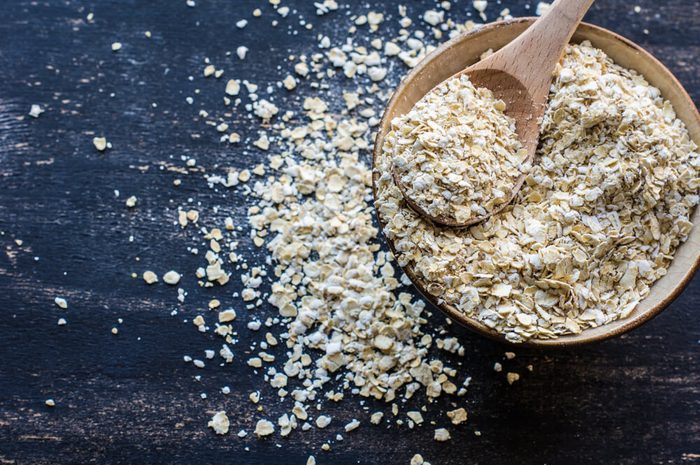
Oats for prebiotics
This gut-friendly whole grain contains two important prebiotics: polyphenols and B-glucan. These prebiotics—they’re food compounds that preferentially feed our healthy gut microbes—are beneficial for those with Crohn’s disease, explains Kate Scarlata, Boston-based RD, gut nutrition expert, and author.
“Most chronic health conditions, including inflammatory bowel disease, cancer, heart disease, obesity, and diabetes, are associated with an imbalance of healthy and potentially pathogenic gut microbes,” she says. “Oats contain anti-inflammatory antioxidants too—1 cup of cooked oats contains 4 grams of gut-friendly fiber, as well as numerous vitamins and minerals including thiamine and magnesium.”
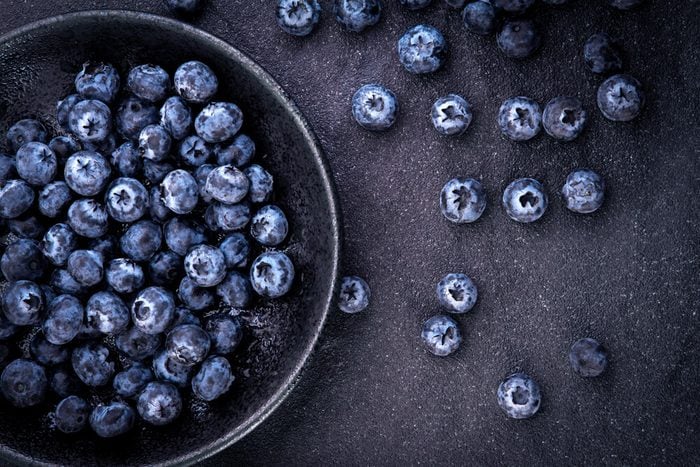
Blueberries for anti-inflammation
Blueberry nutrition serves as one of the richest fruit sources of the antioxidants known as phytonutrients, which include the flavonoids quercetin and anthocyanin. Blueberries are excellent snacks for those with Crohn’s, according to Scarlata.
In fact, a 2016 study published in the journal Nutrients found that flavonoids (a large family of plant compounds) may have anti-inflammatory effects in the intestine. “Blueberries are low in calories, but nutrient- and fiber-rich,” adds Scarlata. “Just a half-cup has a mere 42 calories, 2 grams of fiber, and is an excellent source of vitamin K and C.”

Salmon for omega-3s
Healthy fats known as omega-3s are found in oily fish such as salmon—and tuna, sardines, mackerel, and more. These omega-3s aren’t only great for your heart and digestive system, but they’re also thought to have an anti-inflammatory effect that can be beneficial for those with Crohn’s, according to Corri Wolf, nutrition expert and associate professor of NYIT’s School of Health Professions.
“Additionally, the canned versions have a decent amount of calcium and vitamin D, which is important because many people with Crohn’s are deficient,” she adds.
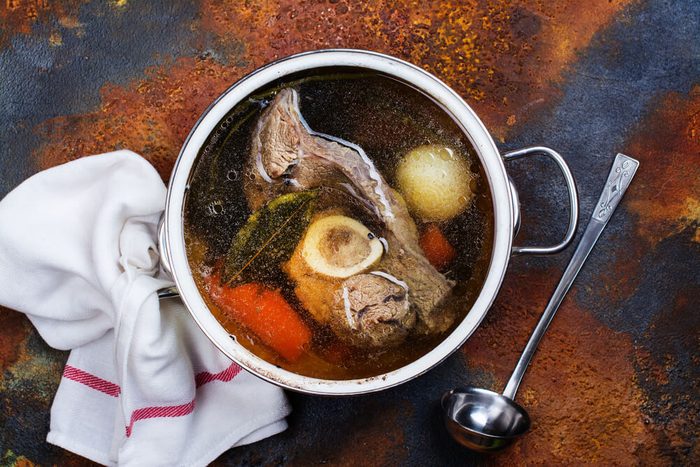
Bone broth benefits for Crohn’s
This superfood has garnered quite a lot of attention lately—and for good reason. With a stock made from bones—aka the same stock you might use in a basic chicken noodle soup recipe—bone broth benefits for Crohn’s include soothing digestive issues.
Not only is bone broth rich in nutrients like phosphorus, magnesium, and calcium, it’s easy for the body to break down and does not strain the intestines.
“When you are sick and having difficulty processing foods, your body needs anti-inflammatory, soothing, and nutrient-rich substances that help heal your body, while providing the nutrition it relies on to function properly,” explains Christina Towle, certified clinical nutritionist and founder of Hudson Valley Nutrition.
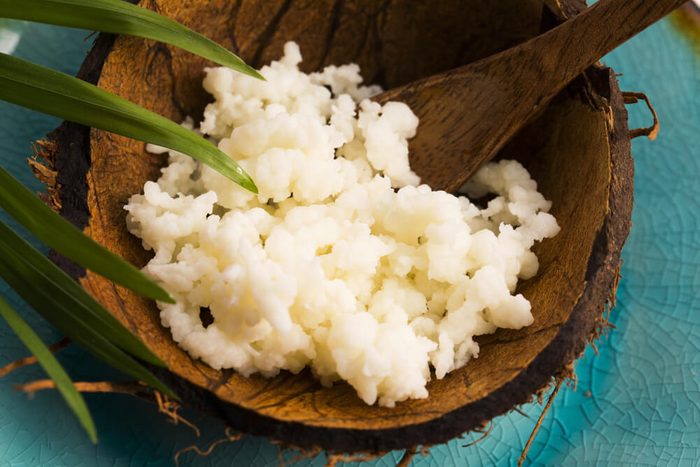
Kefir for gastrointestinal infections
This probiotic-rich fermented milk beverage is extremely beneficial for those with Crohn’s because it aids in your body’s digestive process. It’s also incredibly nutrient-rich.
Kefir is packed with calcium, protein, and B vitamins. “Another benefit of Kefir and its probiotic content is that it may help prevent the gastrointestinal infections that people with Crohn’s are more susceptible to,” explains Wolf.
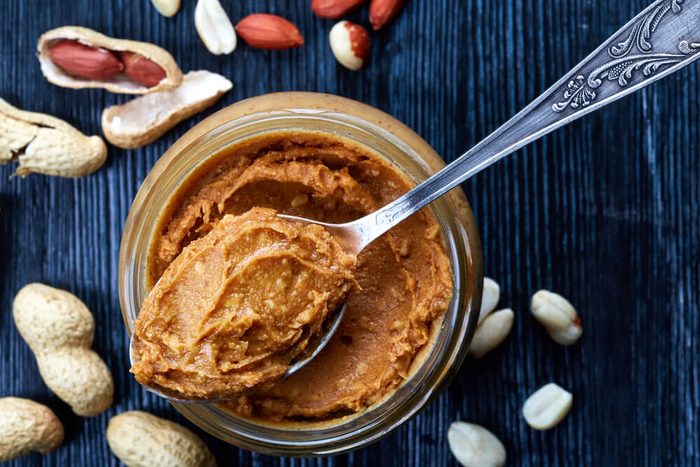
Nut butters for protein
Digesting nuts and seeds can be difficult for people with Crohn’s which is why Wolf recommends nut butters. “They are a good source of protein and are nutrient-dense,” she says. “Walnut butter contains a potent amount of omega-3 fatty acids, while almond butter is packed with vitamin E as well as significant amounts of calcium, magnesium, potassium, phosphorus, and iron.”
Just make sure to choose the smooth—not chunky—version. (Here’s why you should add sunflower seed butter to your diet.)

Eggs for iron levels
Eggs are one of the best superfoods available to everyone—and especially those battling Crohn’s disease flare-ups. “Eggs are an excellent source of folate, iron, zinc, selenium, vitamin D, B vitamins, choline, and lutein,” Wolf explains. “People with Crohn’s often have low iron stores and an increased need for iron due to blood loss, and that makes eggs a fantastic choice.”
When having a flare-up, she recommends eating eggs on toast to avoid upsetting your stomach any further. This easily digestible form of protein will help soothe your stomach and hopefully prevent future flare-ups.
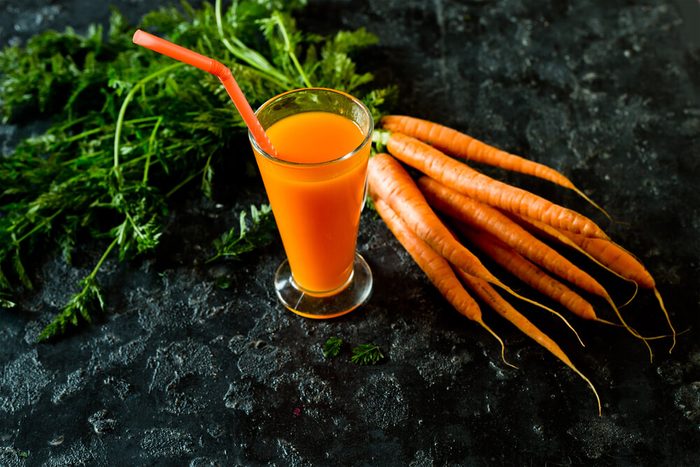
Fresh vegetable juice for antioxidants
The insoluble fiber in veggies is not typically well-tolerated by people with Crohn’s disease, but there is no need to give up vegetables entirely, according to Wolf.
“A healthy alternative to eating vegetables is to make a fresh juice drink out of them,” she suggests. “Juicing removes the insoluble fiber while retaining the antioxidants, vitamins, and minerals.” Just make sure you use a juicer and not a blender, she says: The blender retains the insoluble fiber.
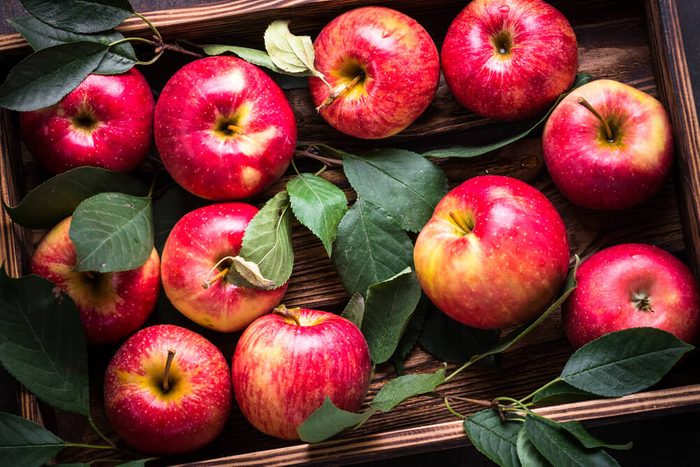
Apples for better bowel movements
While the fiber-rich skin of apples can be a bit harsh on the digestive system, the inside of apples—or applesauce—is quite beneficial for those with Crohn’s disease.
“Apples are nutrient powerhouses containing a wide range of vitamins, minerals, and antioxidants,” says Wolf. “When the skin is removed, the remaining soluble fiber, more specifically the pectin, aids digestion by firming up loose bowel movements, which is especially important during a flare-up.”
When you’re feeling well, she recommends enjoying them raw. But when you’re feeling a flare-up coming on, choose unsweetened applesauce or a baked apple without the skin to make it more easily digestible.
